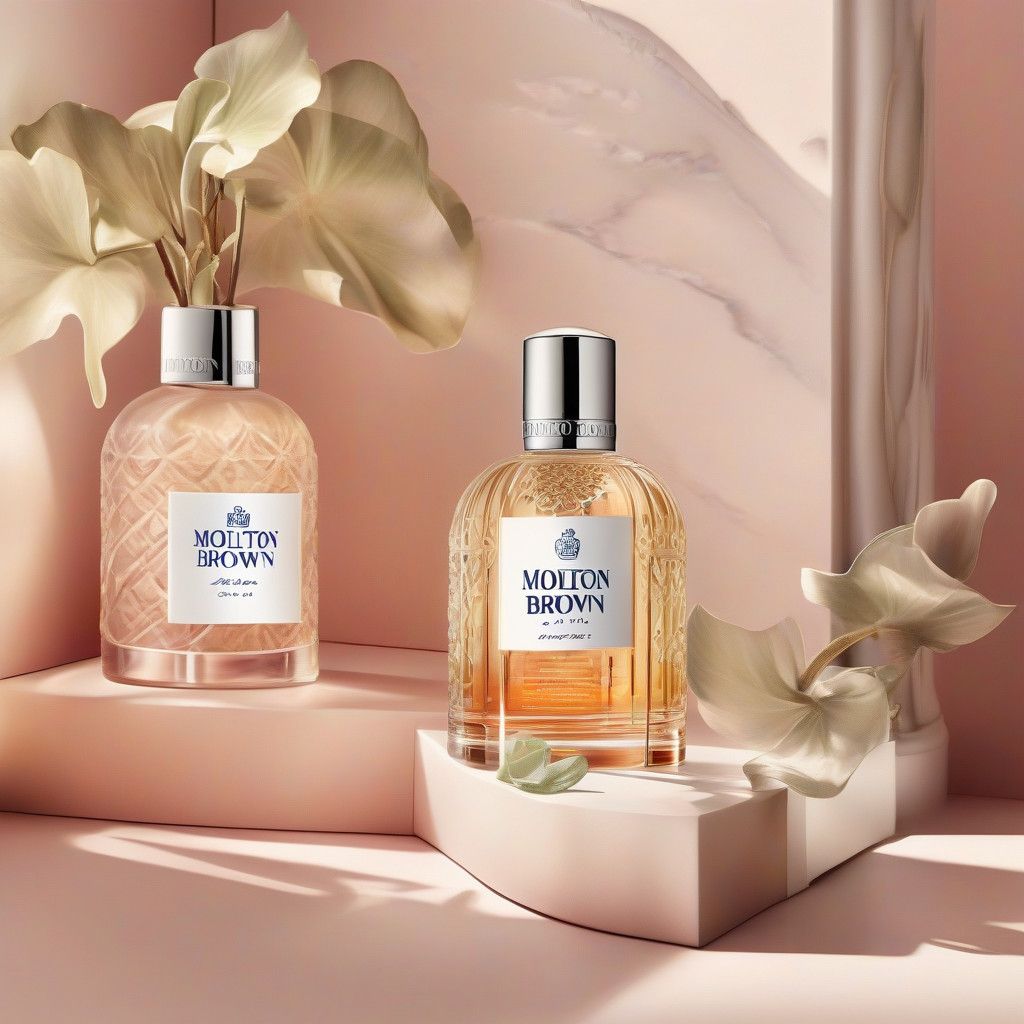In an ambitious move to redefine its identity and spur growth, Molton Brown, the iconic British bath and body brand, is shifting its focus toward the increasingly lucrative fine fragrance market. Since its foray into fragrance in 2019, the brand has endeavored to broaden its appeal, but its recent initiative, dubbed “Artists of Note,” marks its boldest attempt yet to elevate its status within this competitive industry.
Molton Brown is better known for its premium hand and body care products, which are deeply embedded in gifting traditions. Currently, its fragrance line represents approximately 12 percent of its global business, with aspirations to boost this figure to 30 percent. The launch of the “Artists of Note” collection, featuring three popular scents, signals a transformation in its branding strategy aimed at engaging a wider audience while maintaining its loyal customer base.
To achieve this, Molton Brown has enlisted the artistic talents of poet John Cooper Clarke, fashion designer Nicholas Daley, and jewelry designer Gala Colivet Dennison. Each artist has created a unique artwork inspired by the scents Re-Charge Black Pepper, Rose Dunes, and Coastal Cypress & Sea Fennel, each retailing for $180. These artworks will make their debut at the brand’s flagship store on Regent Street, London, before embarking on a tour of other locations.
Accompanying this product launch is a comprehensive refresh of the brand’s visual identity, executed in collaboration with the brand agency Portas. This includes a revitalized logo, updated website aesthetics, and a series of out-of-home advertising campaigns, including scenting London’s Bond Street Tube station throughout September. Mark Johnson, Molton Brown’s global president, highlights the importance of reshaping public perception, particularly as attempts to garner interest from younger demographics and fragrance connoisseurs have not been as effective as hoped.
Molton Brown’s shift towards fragrance comes at a time when many beauty companies are using this category as a buffer against broader economic downturns. The appeal of fragrance transcends seasonal trends, making it a resilient market for brands willing to innovate. With the global fragrance industry becoming increasingly crowded, Molton Brown aims to differentiate itself from high-profile fashion houses and independent brands by emphasizing its heritage of quality.
Despite its rebranding efforts, challenges lie ahead for Molton Brown. While the brand has built a solid reputation over the years, the perception of being primarily a body care company poses a barrier to establishing credibility in the fine fragrance realm. The company’s existing products, such as its signature shower gels, while fragrant, complicate its positioning as a dedicated fragrance label. Industry expert Wizz Selvey notes that the brand faces a competitive landscape filled with firms all vying for a share of the same market, necessitating a strong narrative to build its identity as a fragrance brand.
Another layer of complexity arises from Molton Brown’s relationship with its parent company, Kao Corporation. Kao, facing pressure from investors to enhance brand performance, has a vested interest in helping Molton Brown unlock its full potential. There’s speculation regarding whether Molton Brown can leverage its existing brand equity to capture a more meaningful slice of the fragrance market, especially given that fine fragrance sales make up 40 percent of business in established markets like Japan and Malaysia.
Historically, Molton Brown has thrived in the body care sector, capturing nearly 25 percent of the prestige market in the UK. However, as Johnson explains, this segment has reached a saturation point. Growth opportunities lie outside traditional body care, especially in the fine fragrance category, where the brand currently has a minor foothold. This transition represents both a risk and an opportunity, shifting from a familiar category into a realm filled with potential but also significant competition.
To gain traction, Molton Brown will need to enhance its presence in high-end department stores and fragrance halls, such as those in Neiman Marcus and Harrods, where many shoppers first discover new fragrances. To amplify visibility, the company plans to reorganize its store layouts to ensure that fragrance is a primary focal point upon entry.
Moreover, the cultural climate is shifting, requiring brands like Molton Brown to navigate modern consumer preferences. As the company seeks to attract younger consumers while catering to its existing clientele, its established Royal Warrant may also undergo scrutiny. Johnson contemplates the implications of retaining this emblem, as its meaning varies across different markets.
Ultimately, for Molton Brown, the path to growth will necessitate a careful balance of marketing strategy, product innovation, and enhanced consumer engagement. Successfully emerging as a contender in fine fragrance could provide Kao Corporation with valuable leverage in a competitive landscape, while also reinforcing Molton Brown’s legacy in the beauty industry.
In summary, as Molton Brown embarks on its fragrance expansion journey, the company’s ability to adapt, innovate, and compellingly communicate its unique offerings will be crucial for not just survival but thriving in an increasingly dynamic marketplace.












